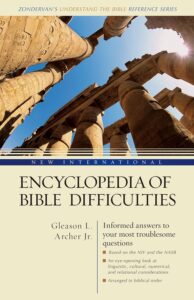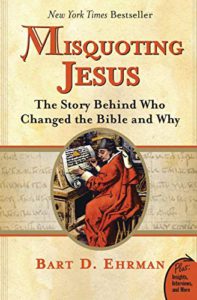 Inerrancy and Alleged Discrepancies of the Bible. Pt.2. KP10-IAB-09
Inerrancy and Alleged Discrepancies of the Bible. Pt.2. KP10-IAB-09
A. Discrepancies due to copyist errors related to numbers due to copyist or scribal error. Examples: 1) Did David capture 1,700 of King Zobah’s horsemen (2 Samuel 8:4), or was it 7,000 (1 Chronicles 18:4)? 2) In 1 Sam 13:5, how were there 30,000 chariots and only 6,000 charioteers? 3) 1 Kings 4:26 – How can this verse say Solomon had 40,000 stalls when 2 Chronicles 9:25 says he had only 4,000 stalls? 4) David’s famine was seven years (2 Sam. 24:13) or three years (1 Chron. 21:12)?
B. Alleged discrepancies arising from incomplete but complementary accounts: Did Judas die by hanging himself (Matthew 27:5) or by falling headlong and bursting open with all his bowels gushing out (Acts 1:18)?
C. Proper perspective on archaeological data and alleged discrepancies (Edwin Yamauchi).
D. Lessons
1) Proper interpretation is crucial in the affirmation of inerrancy:2) Scripture is its best interpreter in canonical context. Scripture priority over fragmentary historical data.3) Inerrancy not naïve or simplistic but highly nuanced Biblical exegesis and hermeneutics must also be highly nuanced
You may view the full video at:
Inerrancy and Alleged Discrepancies of the Bible. Pt.2.
 Bart Ehrman’s primary mission in life is undeniable. It is to discredit Christianity and to deconvert Christians from their faith. Ehrman’s attack on Christianity has been effective because he claims to be speaking as an objective historian (which is debatable), in contrast to apologists and theologians defending their faith and because he is speaking as a lapse fundamentalist with insider-knowledge. Ehrman’s attack on Christianity is comprehensive, but I shall only highlight three of his favorite lines of attack on Christianity.
Bart Ehrman’s primary mission in life is undeniable. It is to discredit Christianity and to deconvert Christians from their faith. Ehrman’s attack on Christianity has been effective because he claims to be speaking as an objective historian (which is debatable), in contrast to apologists and theologians defending their faith and because he is speaking as a lapse fundamentalist with insider-knowledge. Ehrman’s attack on Christianity is comprehensive, but I shall only highlight three of his favorite lines of attack on Christianity. 
